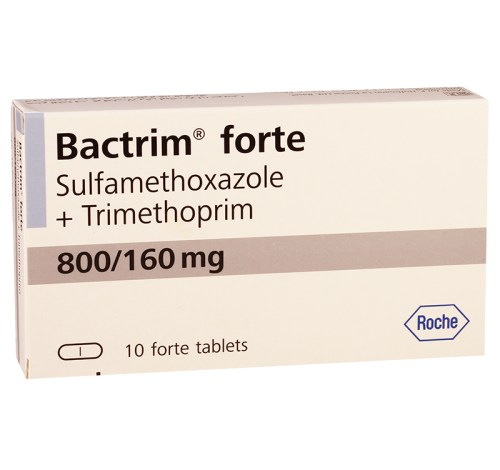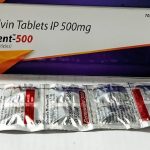List of Foods to Avoid While Taking Bactrim (Sulfamethoxazole/Trimethoprim)

Bactrim is a brand name for a combination antibiotic medication containing sulfamethoxazole and trimethoprim. It is used to treat a variety of bacterial infections, including urinary tract infections, ear infections, bronchitis, traveler’s diarrhea, and Pneumocystis carinii pneumonia (PCP) in people with weakened immune systems.
Sulfamethoxazole and trimethoprim work together to inhibit the growth of bacteria by interfering with the production of folic acid, which is essential for bacterial growth and replication. Bactrim is also effective against other bacterial infections such as acute exacerbations of chronic bronchitis, shigellosis (bacillary dysentery), and certain types of skin infections like cellulitis and impetigo. It is sometimes prescribed as prophylaxis against certain bacterial infections in individuals at risk, such as those undergoing certain types of surgeries or procedures that may increase the risk of infection.
Sulfamethoxazole and trimethoprim, the active ingredients in Bactrim, work synergistically to combat bacterial infections. Sulfamethoxazole is a sulfonamide antibiotic that inhibits the production of dihydrofolic acid, a precursor to the folic acid required by bacteria for DNA synthesis. Trimethoprim acts by inhibiting the enzyme dihydrofolate reductase, further disrupting the production of tetrahydrofolic acid, which is essential for bacterial growth and replication. By targeting different steps in the folic acid synthesis pathway, the combination of sulfamethoxazole and trimethoprim makes it harder for bacteria to develop resistance to the antibiotic.
Bactrim is available in various formulations, including tablets, oral suspension, and intravenous injection. The choice of formulation and dosage depends on the type and severity of the infection, as well as the age and weight of the patient.
When taking medication such as Bactrim, it’s essential to be mindful of potential interactions with certain foods. While Bactrim is generally well-tolerated, there are some food items that can interfere with its effectiveness or cause unwanted side effects. This article provides a comprehensive list of foods to avoid while taking Bactrim, along with explanations of how they may interact with the medication.
List OF Foods To Avoid While Taking Bactrim
While Bactrim is highly effective in treating bacterial infections, consuming certain foods can interfere with its absorption or increase the risk of adverse effects they include:
- Dairy Products: Dairy products such as milk, cheese, yogurt, and ice cream should be avoided while taking Bactrim. These foods are rich in calcium, which can bind to the antibiotic, reducing its absorption and effectiveness in the body. It’s advisable to wait at least 2 hours after taking Bactrim before consuming dairy products to minimize this interaction.
- High-Fiber Foods: Foods high in fiber, including whole grains, bran, and certain fruits and vegetables, may interfere with the absorption of Bactrim. Fiber can reduce the absorption of the antibiotic in the gastrointestinal tract, potentially decreasing its effectiveness. To minimize this interaction, it’s recommended to separate the intake of high-fiber foods and Bactrim by a few hours.
- Foods High in Vitamin K: Vitamin K-rich foods, such as leafy greens like kale, spinach, and broccoli, can interact with Bactrim. The medication may interfere with the body’s ability to utilize vitamin K, which is essential for blood clotting. While moderate consumption of vitamin K-rich foods is generally safe, individuals taking Bactrim should maintain consistent intake levels to avoid potential fluctuations in blood clotting.
- Alcohol: Alcohol consumption should be avoided while taking Bactrim, as it can increase the risk of side effects such as dizziness, drowsiness, and gastrointestinal upset. Additionally, alcohol can interfere with the body’s ability to metabolize Bactrim, potentially leading to higher blood levels and increased toxicity. It’s advisable to refrain from alcohol consumption for the duration of Bactrim treatment to ensure optimal safety and effectiveness.
- Foods Containing Tyramine: Certain foods containing tyramine, such as aged cheeses, cured meats, and fermented foods, should be avoided while taking Bactrim. The medication can inhibit the breakdown of tyramine in the body, leading to a buildup of this compound. Excessive levels of tyramine can cause a sudden increase in blood pressure, known as hypertensive crisis, particularly in individuals taking monoamine oxidase inhibitors (MAOIs) or other medications that interact with tyramine.
Conclusion
In conclusion, while Bactrim is an effective antibiotic for treating bacterial infections, it’s essential to be mindful of potential interactions with certain foods. By avoiding dairy products, high-fiber foods, foods high in vitamin K, alcohol, and foods containing tyramine, individuals can minimize the risk of adverse effects and ensure the optimal efficacy of Bactrim. However, it’s important to consult with a healthcare professional or pharmacist for personalized advice on medication and dietary considerations. Always follow the guidance provided by your healthcare provider to ensure safe and effective treatment.





